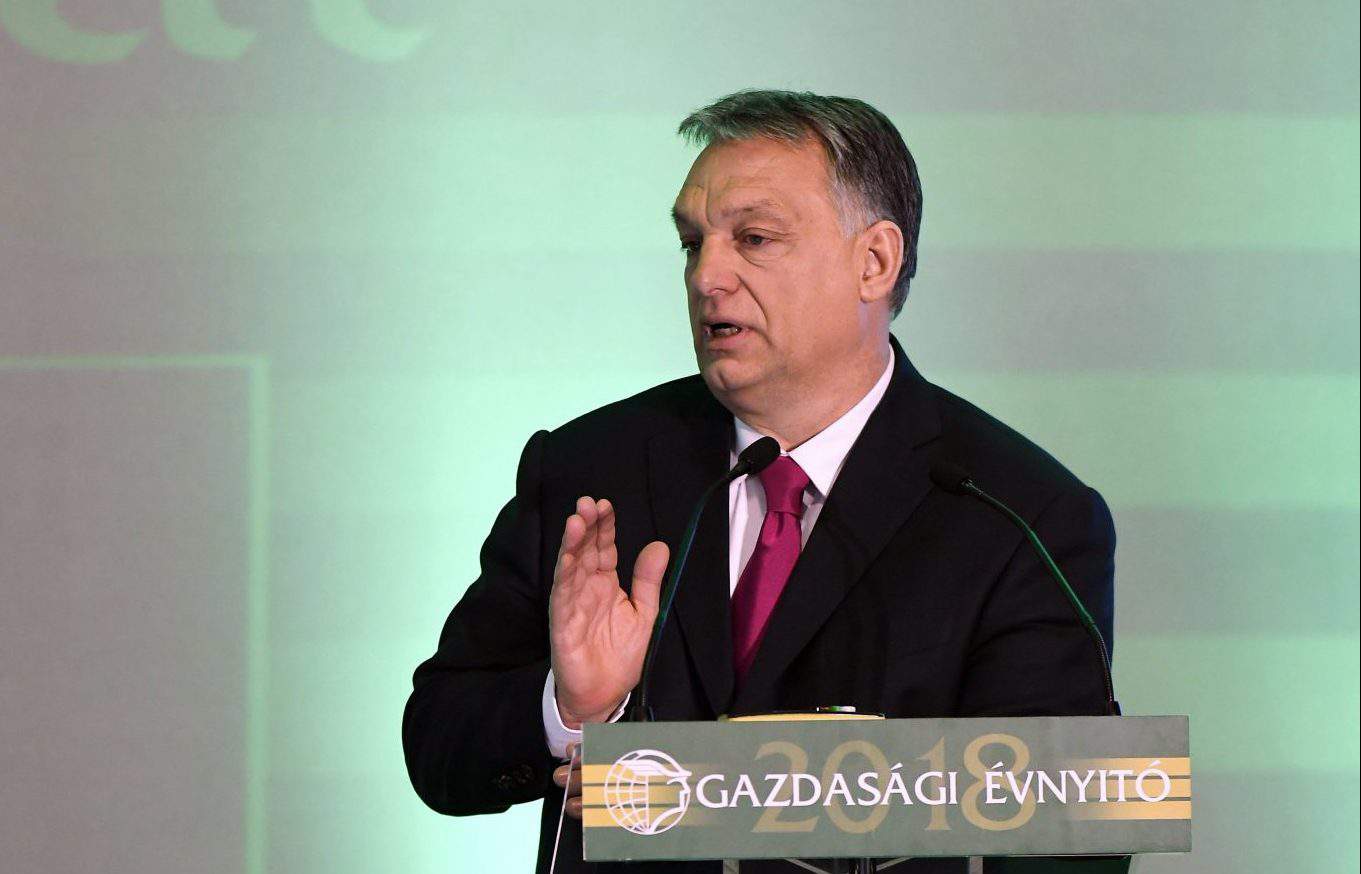Orbán: Becoming ‘immigrant country’ would push Hungary into decline
If Hungary avoids becoming an “immigrant country”, it will prosper, but otherwise it will “regress, decline and stagnate”, Prime Minister Viktor Orbán said at the Chamber of Commerce and Industry’s annual opening session on Tuesday.
“In order for Hungary to be able to do anything in the next four years”, no migrant should be allowed into the country, the border fence has to be protected, “Brussels should be made to pay” for at least half of the costs of Hungary’s border fence and “everyone actively involved in organising immigration” should be banned from the country, Orbán said.
The prime minister said that under the EU’s most recent proposal on managing migration, Hungary would have to take in more than 10,000 people and counting family reunifications, its implementation would cost an annual 90 billion forints (EUR 286.6m) for the central budget.
Hungary is performing better today because “we didn’t let anyone strip us of the freedom to make decisions for ourselves, because we would be in dire straits if Brussels or the IMF made decisions of national importance,” he said.
The prime minister added that since his government came to power in 2010, the IMF has been “sent home”, Hungary paid off its loans to the IMF and the EU and the unemployment rate has dropped to 3.8 percent, with “full employment being at arm’s reach”. Also, the budget deficit has been kept below 3 percent over the past six years and public debt has been reduced, Orbán added.
During this time, the government did not rely on the IMF, look to foreign models as examples to be followed or “bow to any threat”, he said. It instead reached an agreement with Hungarian employers and trade unions and has succeeded in raising the minimum wage by 90 percent since 2010, and doubled the minimum wage for skilled workers, Orbán added.
“If Hungary can be protected”, maintaining an annual growth rate of 4 percent is feasible, as is to achieve full employment by 2022, Orbán said.
The prime minister also gave an outline of central European infrastructure investment projects, including the upgrade of the Budapest-Belgrade railway line and plans to build high-speed rail lines to connect Budapest and Warsaw and Budapest and Cluj-Napoca (Kolozsvár).
Orbán also mentioned plans to build under the next government cycle motorways connecting Miskolc in north-eastern Hungary and Kosice (Kassa) in eastern Slovakia and Pecs in southern Hungary with the Croatian border.
He stressed that the government would not draft an “election budget” insisting that the budget deficit would remain below 3 percent of GDP.
On the topic of unemployment, Orbán said that if re-elected to a third consecutive term in office, he and his economic policymakers would work to ensure that Hungary has the second-lowest unemployment rate in Europe behind the Czech Republic.
In conclusion, Orbán said that the four pillars of Hungary’s economic model were the country’s competitiveness, its labour-based economy and its demographic and identity policies.
He said it was important for Hungarian entrepreneurs that the next government’s economic policy represent the interests of Hungarian businesses. “The protection of our national independence is the alpha and omega of this [requirement],” he said.
Featured image: MTI
Source: MTI
please make a donation here
Hot news
What happened today in Hungary – 26 July, 2024
Drama: number of births in a 20-year low in Hungary
Yay or nay? – 6 odd Hungarian delicacies that make our skin crawl
Budapest tourism “exploded” this past weekend
Container transport in Budapest may stop: How will this affect Hungarian economy?
Minister: Hungary will protect its territory by every means possible




